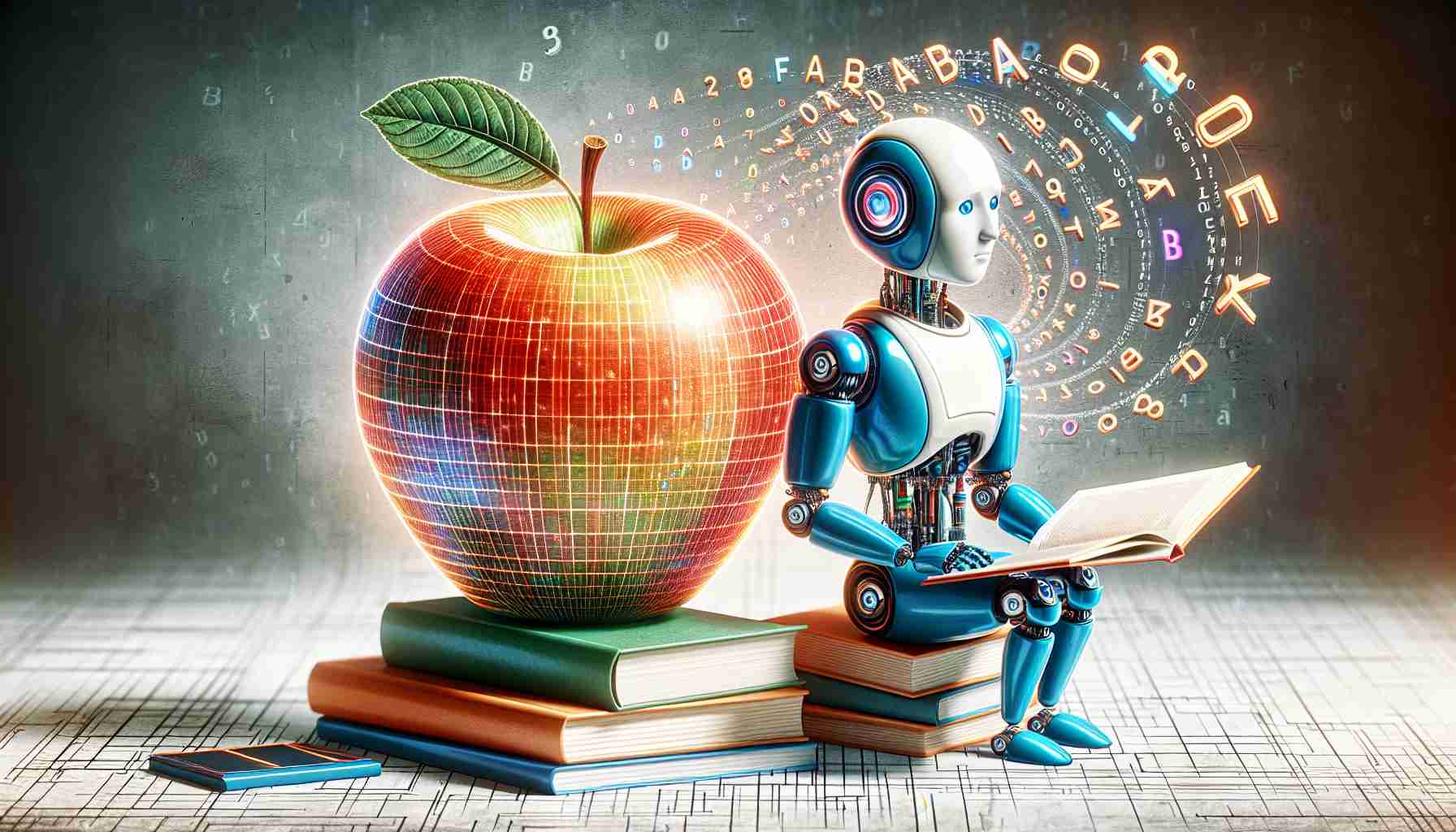Apple is gearing up for a transformative moment as they navigate through a period of diminished iPhone sales and a notable lag in the adoption of artificial intelligence (AI) technologies. Anticipating the upcoming Worldwide Developers Conference, Apple is set to announce a strategic partnership with OpenAI, aimed at introducing a collection of AI tools for iOS. This move is expected to catalyze a new wave of iPhone sales growth in the years to come.
Industry analysts regard this shift toward AI as a potential turning point for the technology giant. Historically known for their conservative approach to innovation, the company’s pivot towards AI signifies a departure from tradition, which could profoundly influence their future products and services. Forbes Slovenia outlines the significance of this redirection, highlighting the potential for Apple to commence on a groundbreaking trajectory.
The first major integration of AI is likely to enhance Apple’s voice assistant, Siri, by substantially elevating its capabilities. The anticipated improvements will enable Siri to execute more complex tasks and better accommodate user preferences, drastically improving user experience. Moreover, AI enhancements are not limited to Siri; they are poised to reinvent the wider Apple ecosystem, with upgrades anticipated across various Apple applications such as Apple Maps, iMovie, and iPhoto.
Additionally, Apple plans to reveal the latest innovations for their Vision Pro mixed reality headset at the conference. Despite the high price tag of $3,400, there’s an expectation of growing demand as Apple layers these AI advancements into their product offerings, creating a more integrated and intelligent technology experience for users.
AI Collaborations and Big Tech
Apple’s collaboration with OpenAI follows a larger trend of big technology firms seeking to bolster their capabilities in artificial intelligence through acquisitions, partnerships, and significant R&D investments. Companies like Google, Amazon, and Microsoft have been heavily involved in AI development, which has influenced the trajectory of their products and long-term strategies. For example, Google has been a leader in AI with its DeepMind subsidiary and AI-driven products like Google Assistant.
AI Integration in Consumer Devices
Integrating AI into consumer devices has been a focus for tech companies seeking to improve user experience and functionality. By adopting AI, devices can offer personalized services, predictive text and email responses, intelligent photo categorization, and more advanced user interactions. This trend is increasingly seen as necessary to remain competitive in a tech landscape that is ever more reliant on smart features.
Concerns and Controversies
As with any technological advancement, there are key concerns associated with the AI revolution. Privacy is a major concern, as AI systems often need to process large amounts of personal data to function optimally. The challenge for Apple, known for its strong stance on user privacy, will be to reconcile its AI ambitions with its privacy-centric values.
Another challenge is the potential for AI bias and the societal implications thereof. AI systems can perpetuate or even exacerbate biases if they are trained on skewed datasets. It will be crucial for Apple to ensure that their AI models are fair and unbiased, to avoid public backlash and ethical quandaries.
Additionally, there is controversy regarding the impact of AI on employment. As AI becomes capable of performing tasks traditionally done by humans, this could lead to job displacement, requiring that employees reskill or transition to other types of work.
Advantages and Disadvantages
The advantages of Apple’s partnership with OpenAI and their further push into AI include:
– Enhanced User Experience: AI can provide a seamless and intuitive user interface, making smartphones and other Apple devices more accessible and efficient for consumers.
– Innovation: The integration of AI technology can lead to new features and applications, maintaining Apple’s reputation as a leading innovator in the tech industry.
– Competitive Edge: In a market where AI is rapidly becoming table stakes, Apple’s AI advancements ensure the company remains competitive and relevant.
However, there are also potential disadvantages:
– Privacy Concerns: Increasing the AI capabilities of devices often involves the collection and analysis of personal data, which may raise privacy issues among consumers.
– Complexity and Cost: Developing and integrating AI technology can be expensive, which may lead to higher prices for consumers, as seen with the Vision Pro mixed reality headset.
– Dependence on Technology: There’s an ongoing debate about society’s increasing dependence on technology, and AI’s role in exacerbating this dependency.
For those interested in exploring more about AI and the impact of tech giants on its development, here are relevant links:
These organizations’ main domains house further information regarding their efforts within AI and related news.

